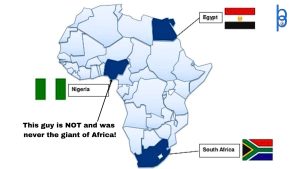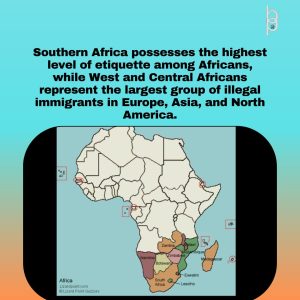
How has democracy faired in Africa?
Africa, as a mother of many nations, has seen its children experience stunted, very little, or no growth since the inception of its current 54 states. There are many possible scenarios, not limited to remote or immediate. Are these factors immutable, or can they be managed or somehow eradicated? This work will briefly introduce the concept of democracy and dictatorship, highlighting precolonial and colonial Africa to postcolonial times under democracy and dictatorship using selected African countries, trace the problems of African nations, and conclude on their true messiah.
Before the early 1900s, Africa had systems and institutions working for it. They had chiefs and constituted authorities in charge of the people, articles of trade, trade routes, and other sectors of the economy and politics that required leadership control or scrutiny. When Otto von Bismarck chaired the Berlin Conference of 1884/5, which subsequently led to the scrambling of parts of Africa by European powers, it ushered in colonist activities in Africa. Thereby placing them in complete control of economic activities and political influence. They infiltrated the hinterlands of these African nations and turned it into their gain. The colonial epoch was characterised by the grave exploitation of Africa and its people.
The 1960s ushered in independence in most African states, causing them to copy democratic political systems. The elites, on the other hand, ruled in favour of the former colonialists. An act that has stretched to date These are the vestiges of colonialism.
The famous view of Abraham Lincoln on democracy posits that it is a system of government of the people, by the people, and for the people. Returning to the ancient Greek city-states, the populace chose a representative to represent their interests. This political trend has evolved over the years. The various states have embraced and abused it at the same time. On the international stage, there is debate over whether developing democracies should fully embrace it. On the flip side, there is dictatorship. Contextually, benevolence in dictatorship is a system whereby the head of government aims to advance its citizens’ welfare and the nation’s interests. They, however, delegate power to people who would help them attain their country’s economic and societal growth.
After independence, Nigeria, as an emerging democracy, witnessed interruptions from the military government. Nigeria is one of the countries that experienced the interruption of a military dictatorship. Resulting in bad governance and corruption by the civilian government. Hence, the first coup of 1966. Nzeogwu is primarily known in disgrace for his role in orchestrating one of Nigeria’s deadliest coups. But was he a murderous opportunist or a misunderstood revolutionary? Nzeogwu outlined Nigeria’s political elite’s incapacity, incompetence, and corruption and emphasised to the soldiers their responsibility to reroute Nigeria back towards development and prosperity. Additionally, in the case of other African nations where the military took the reins of power, the intent was to curb civilian government excesses and liberate the people.
In Africa, as the saying goes, he who is not conscious when he is rained upon, will equally be unconscious when it stops. One cannot trace the problem the developing African nations faced without first ascribing it to the Europeans who initiated the failed institutions in the first place.
Acemogulu and Robinson argue in Why Nations Fail that economic and political institutions shape incentives for businesses, individuals, and politicians in society. Economic institutions influence education, savings, investment, and innovation, while political institutions determine the economic institutions and their functioning (Acemogulu & Robinson, 2012). These institutions, in turn, determine the success or failure of nations. The failure of democracy has led to uprisings and revolts across African nations. Digital democracy was what Africans enjoyed up until the 2000s. Africa and its people have experienced digital democracy and dictatorship, where it has been downplayed on the side of the citizenry in contemporary politics (Gopaldas, 2019). The same kind of dictatorship interrupted even that. In the case of Nigeria, a Twitter ban invoked institutional censorship.
The Seychelles used to be the church rat of Africa. However, it had a decent GDP (gross domestic product) commensurate to its population increase, a literacy rate of up to 90%, improved healthcare, and a robust system under France-Albert René. In Burkina Faso, where Sankarism was championed, citizenship and people-centeredness were the order of the day, albeit in a military government. Thomas Sankara believed in women’s liberation as the foundation of his social revolution. Upon this, he fought for the freedom of the African man from struggle.
Beyond Africa, there are Josip Broz Tito of the former Yugoslavia, Lee Kuan Yee of Singapore, Augusto Pinochet of Chile, Park Chung-He of South Korea, and Deng Xiaoping of China. With benevolence in their hearts and dictatorship in their hands, these men transformed these nations, which appeared to be in the darkest period of their history.
Conclusion
Why is the DRC (Democratic Republic of the Congo) one of the richest country in the world regarding mineral resources yet so poor? An African proverb states that when a woman marries two husbands, she will determine whom she will remain with. Over the years, African nations have had a full taste of democracy and dictatorship. Dictatorship began when democracy and its tenets failed fantastically. But the corruption among these nations is systemic. For the liberation of African nations as emerging democracies, these political trends’ evolution and subsequent failure pointed out that neither democracy nor dictatorship is the messiah. Or maybe a tweak of the latter will save her. Africa needs a benevolent dictator to eliminate the failed institutions of democracy and military government.
By Chidimma NWAFOR





